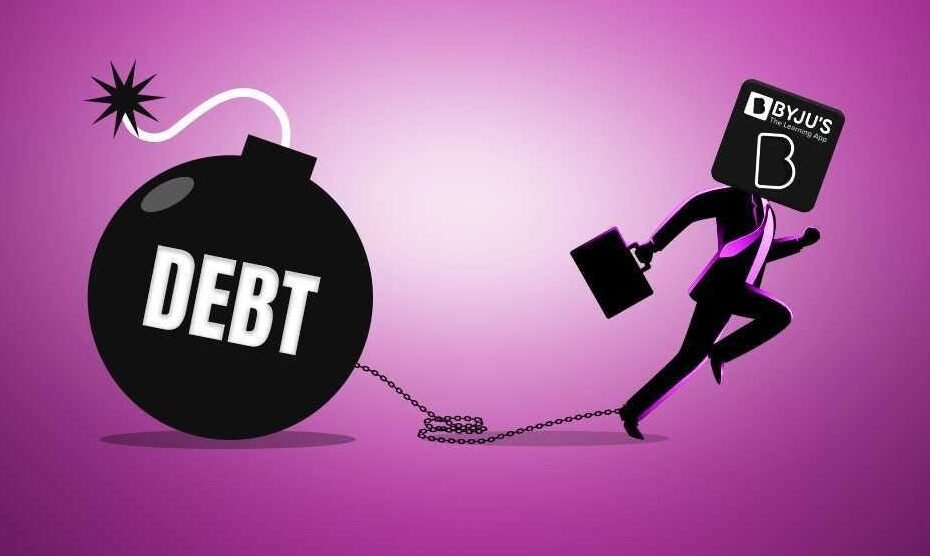The Indian edtech company Byju’s, once valued at $22 billion, is now facing legal showdowns. Earlier this week, the company was admitted to insolvency by the National Company Law Tribunal (NCLT). This development has raised concerns about the future of the edtech sector, employees, and investors.
Table of Contents
What Happens to Byju’s?
Byju Raveendran, the founder of Byju’s, will lose control of the firm to an interim resolution professional (IRP). The IRP will begin the process of forming a committee of Byju’s financial creditors, and subsequently hand over control to them. Raveendran now stares at a tight deadline to settle with the Board of Control for Cricket in India (BCCI), India’s powerful cricket board, out of court. The BCCI dragged Byju’s to the bankruptcy court for default worth ₹158 crore. If creditors take over, the firm’s fate will lie in their hands. Byju’s has now appealed to an appellate tribunal.
Impact on Other Edtech Players
Other edtech companies have also been going through a tough time, having overspent to grow during a funding boom in 2021. Some companies, including Byju’s, went in for aggressive acquisitions, which backfired. Unacademy, the second most valued edtech company in India, saw a string of top-level exits. It is in conversation with other online education firms for a possible merger, media reports have stated.
How Did Byju’s Reach This Point?
Byju’s, which describes itself as the “world’s largest education technology company”, offers online tutorials on several subjects including math, physics, and chemistry for school students. Its business boomed during the Covid-19 pandemic, and the company’s valuation shot up from $5 billion before the pandemic to $22 billion in 2022, and it acquired several companies on the way.
However, the company’s troubles began when the BCCI last year asked a tribunal to initiate insolvency proceedings against Byju’s for defaulting on $19 million of dues. The dispute is over payments related to sponsorship rights for the Indian cricket team’s jerseys.
The Rise and Fall of Byju’s
Byju’s was founded in 2011 by Byju Raveendran, a former teacher who started offering online classes to students. The company’s early success was fueled by its innovative approach to education, which included interactive videos and personalized learning. Byju’s quickly gained popularity among students and parents, and its user base grew rapidly.
In 2015, Byju’s raised its first round of funding from investors, including the Chan Zuckerberg Initiative, founded by Facebook’s Mark Zuckerberg and his wife Priscilla Chan. The company continued to grow, and by 2020, it had become one of the most valuable edtech companies in the world.
However, Byju’s aggressive expansion and acquisition strategy began to take a toll on the company’s finances. The company’s losses mounted, and its valuation began to decline. In 2022, Byju’s laid off thousands of employees, citing cost-cutting measures.
Impact on Employment in the Sector
The future of Byju’s 10,000-odd workers in India will depend on the outcome of the bankruptcy proceedings. Ex-employees, who were sacked over the past two years, can claim unpaid dues to the resolution professional. Across Indian edtech firms, teaching jobs and compensation are likely to be impacted. And the infamous poaching war for educators is set to cool.
Is This Good News for Offline Learning?
Over the past year, edtech companies that held the torch for online learning have increasingly moved offline. Test preparation firms like PhysicsWallah and Unacademy have forayed offline, increasing competition for incumbents like Allen Career Institute. While traditional offline players might have benefited from Byju’s fall, the development coincides with falling enrolments in major coaching hubs like Kota. Students are migrating to branches in smaller cities.
What Now for Edtech Investments?
With slowing demand for online education and losses at edtech startups, investors have grown cautious. Once the poster-child of startup funding, investments in edtech have slowed down significantly. The future of edtech investments remains uncertain, and it will be interesting to see how investors respond to this crisis.
The Bigger Picture: Edtech’s Sustainability
The Byju’s bankruptcy has raised questions about the sustainability of the edtech business model. Edtech companies have been accused of prioritizing growth over profitability, leading to a bubble that was bound to burst. The sector’s high valuation-to-revenue ratio has been a concern for investors, and the Byju’s bankruptcy has brought these concerns to the forefront. The edtech sector’s woes are not limited to Byju’s. Other companies, including Unacademy and Ved
Conclusion
The Byju’s bankruptcy is a wake-up call for the edtech sector, and it remains to be seen how the sector will respond to this crisis. The future of edtech investments remains uncertain, and it will be interesting to see how investors respond to this crisis.
FAQ’s
Q: What happened to Byju's?
A: Byju's has been admitted to insolvency due to financial crisis and defaulting on dues.
Q: Who filed the insolvency petition?
A: The Board of Control for Cricket in India (BCCI) filed the petition against Byju's.
Q: What is the impact on Byju's management?
A: Founder Byju Raveendran and his team will lose operational control.
Q: What about employees and operations?
A: Employees will continue to work, and classes will run as usual under the supervision of an interim resolution professional.
Q: Can Byju's still settle with creditors?
A: Yes, but it's complicated, and the company has a deadline to reach a settlement
